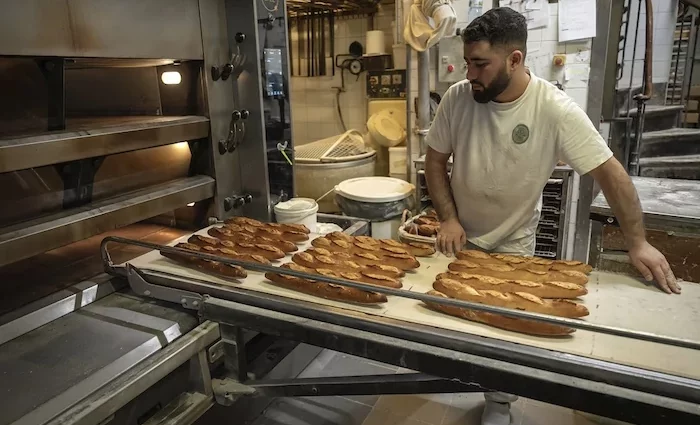Inflation held at 2.5% for the year ending in February, the Bureau of Labor Statistics reported Friday in an update to the personal consumption expenditures index, which is the Federal Reserve’s preferred gauge.
The reading was in line with expectations.
But core inflation, which strips out volatile food and energy prices, rose a tenth of a percentage point to 2.8% on an annual basis.
Persistent price pressures are a problem for the agenda of President Donald Trump. This is the second PCE inflation report since he has been sworn in and shows the Fed will have to continue working to bring down prices and that inflation could be a lingering problem for the new administration.
On a month-to-month basis, headline inflation was 0.3%, and core inflation was 0.4% on a monthly basis. That translates to roughly 5% inflation on an annual basis, well above the Fed’s 2% goal.
Officials at the Fed are watching the inflation numbers closely to determine whether to lower interest rates further to spur more economic activity or to forgo further rate cuts to try to tamp down inflation.
The Fed cut rates by a whole percentage point last year. As inflation proved difficult to subdue, though, the central bank opted to hold interest rates steady at its January meeting and then again at its meeting earlier this month.
Trump has plowed ahead with tariff plans recently, which has caused economic uncertainty to rise and the stock market to post major losses. There are also indications of a slowdown in economic growth, and economists have said the odds of a recession are rising.
Federal Reserve Chairman Jerome Powell said at the last meeting that Trump’s tariff agenda could make it more difficult to achieve the Fed’s goal of lowering inflation.
STAGFLATION CHATTER DOGS TRUMP AGENDA
Powell said the Fed was getting close to its goal of price stability last year, when inflation was running at about 2.5% for some time, but he acknowledged that the imposition of more tariffs could hamper its pursuit of its target.
“I do think with the arrival of the tariff inflation, further progress may be delayed,” he told reporters.


